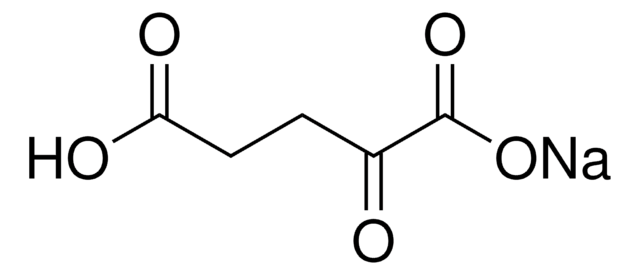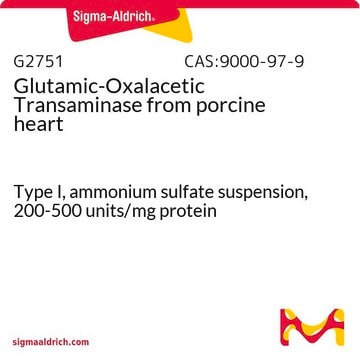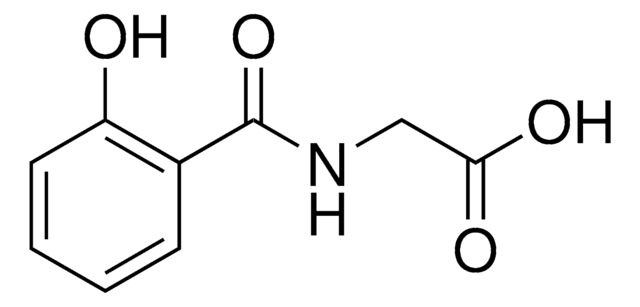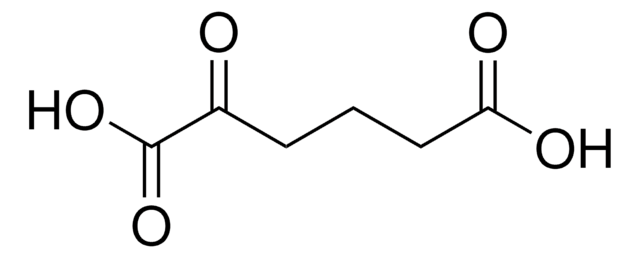K1750
αAcide α-cétoglutarique
≥98.5% (NaOH, titration)
Synonyme(s) :
Acide 2-oxoglutarique, Acide 2-oxopentanedioïque
About This Item
Produits recommandés
Niveau de qualité
Pureté
≥98.5% (NaOH, titration)
Forme
powder
Solubilité
water: 100 mg/mL, clear to slightly hazy, colorless to faintly yellow
Température de stockage
2-8°C
Chaîne SMILES
OC(=O)CCC(=O)C(O)=O
InChI
1S/C5H6O5/c6-3(5(9)10)1-2-4(7)8/h1-2H2,(H,7,8)(H,9,10)
Clé InChI
KPGXRSRHYNQIFN-UHFFFAOYSA-N
Vous recherchez des produits similaires ? Visite Guide de comparaison des produits
Description générale
Application
- to study its effects on swine fecal microflora in an in vitro fermentation system
- to study its effects on the activation of CD8+ T-cells
- as a substrate in glutamate oxaloacetate transaminase (GOT2) mitochondrial lysate assay
Actions biochimiques/physiologiques
Mention d'avertissement
Danger
Mentions de danger
Conseils de prudence
Classification des risques
Eye Dam. 1
Code de la classe de stockage
11 - Combustible Solids
Classe de danger pour l'eau (WGK)
WGK 3
Point d'éclair (°F)
Not applicable
Point d'éclair (°C)
Not applicable
Équipement de protection individuelle
dust mask type N95 (US), Eyeshields, Gloves
Certificats d'analyse (COA)
Recherchez un Certificats d'analyse (COA) en saisissant le numéro de lot du produit. Les numéros de lot figurent sur l'étiquette du produit après les mots "Lot" ou "Batch".
Déjà en possession de ce produit ?
Retrouvez la documentation relative aux produits que vous avez récemment achetés dans la Bibliothèque de documents.
Les clients ont également consulté
Notre équipe de scientifiques dispose d'une expérience dans tous les secteurs de la recherche, notamment en sciences de la vie, science des matériaux, synthèse chimique, chromatographie, analyse et dans de nombreux autres domaines..
Contacter notre Service technique













